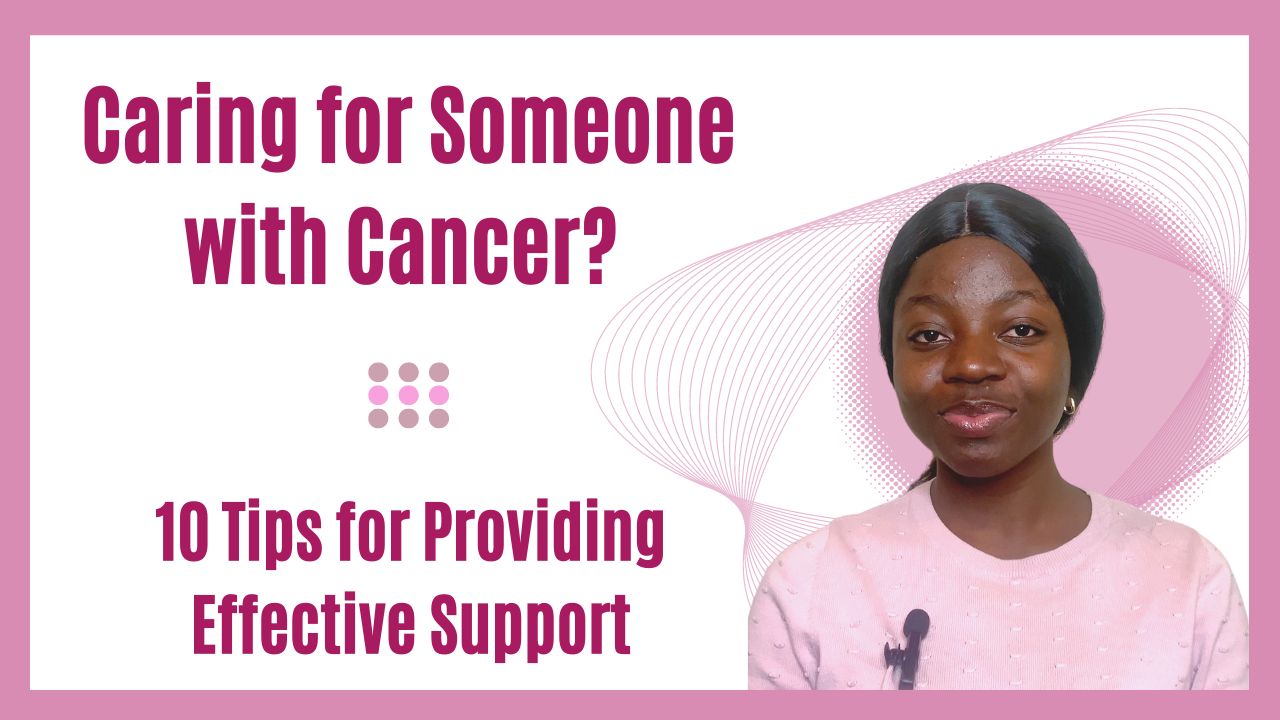Being a caregiver for a loved one with cancer can be a challenging and emotionally taxing experience. However, providing support and care for someone going through cancer treatment is also one of the most meaningful and rewarding things you can do. In this article, we will provide 10 tips for supporting a loved one with cancer and offer guidance on how to be an effective caregiver during this difficult time.
- Educate yourself about cancer and its treatment: The first step in providing effective care for a loved one with cancer is to educate yourself about the disease and its treatment options. Talk to your loved one’s healthcare provider, do your own research, and attend support groups to better understand what your loved one is going through.
- Be a good listener: Listen to your loved one’s concerns, fears, and feelings without judgment or interruption. Offer empathy, support, and reassurance that you are there for them.
- Help with daily activities: Cancer treatment can be physically draining and make it challenging for your loved one to perform daily activities. Offer to help with household chores, cooking, and running errands.
- Encourage self-care: Encourage your loved one to take care of themselves by eating well, getting enough sleep, and engaging in physical activity. Offer to accompany them to doctor’s appointments and help them manage their medication.
- Provide emotional support: Cancer treatment can be emotionally exhausting and isolating. Offer emotional support by spending time with your loved one, doing activities they enjoy, and providing comfort and companionship.
- Help them maintain their social connections: Encourage your loved one to maintain their social connections and engage in activities they enjoy. Offer to coordinate visits from friends and family or help them participate in online support groups.
- Communicate effectively with healthcare providers: Be an advocate for your loved one by communicating effectively with their healthcare providers. Ask questions, keep track of medications and treatment plans, and make sure your loved one is receiving the care they need.
- Take care of yourself: Being a caregiver can be emotionally and physically draining. Make sure to take care of your own needs by seeking support from friends and family, attending support groups, and engaging in activities that bring you joy.
- Be flexible and adaptable: Cancer treatment can be unpredictable and plans may change frequently. Be flexible and adaptable to the changing needs of your loved one and be prepared to adjust your schedule as needed.
- Celebrate small victories: Celebrate the small victories and milestones in your loved one’s treatment. These can provide hope and motivation during a difficult time.
Conclusion
Being a caregiver for a loved one with cancer can be challenging, but also deeply rewarding. By following these 10 tips, you can provide effective support and care for your loved one during this difficult time, while also taking care of your own needs. Remember that you are not alone and there are many resources available to help you and your loved one through this journey.
References
Cancer Support Community, www.cancersupportcommunity.org. Accessed January 15th, 2023.










What do you think?
It is nice to know your opinion. Leave a comment.